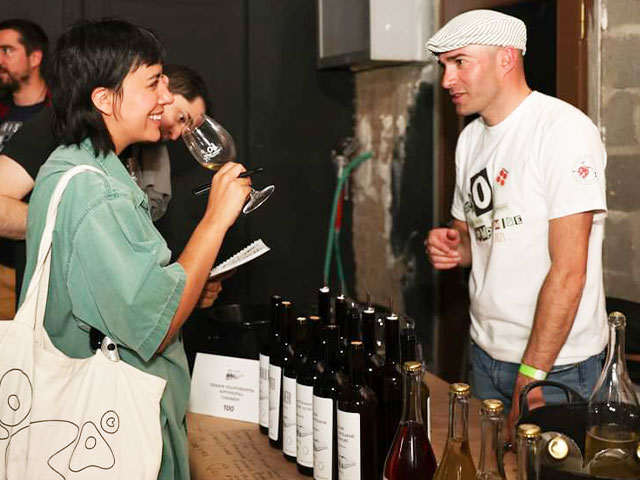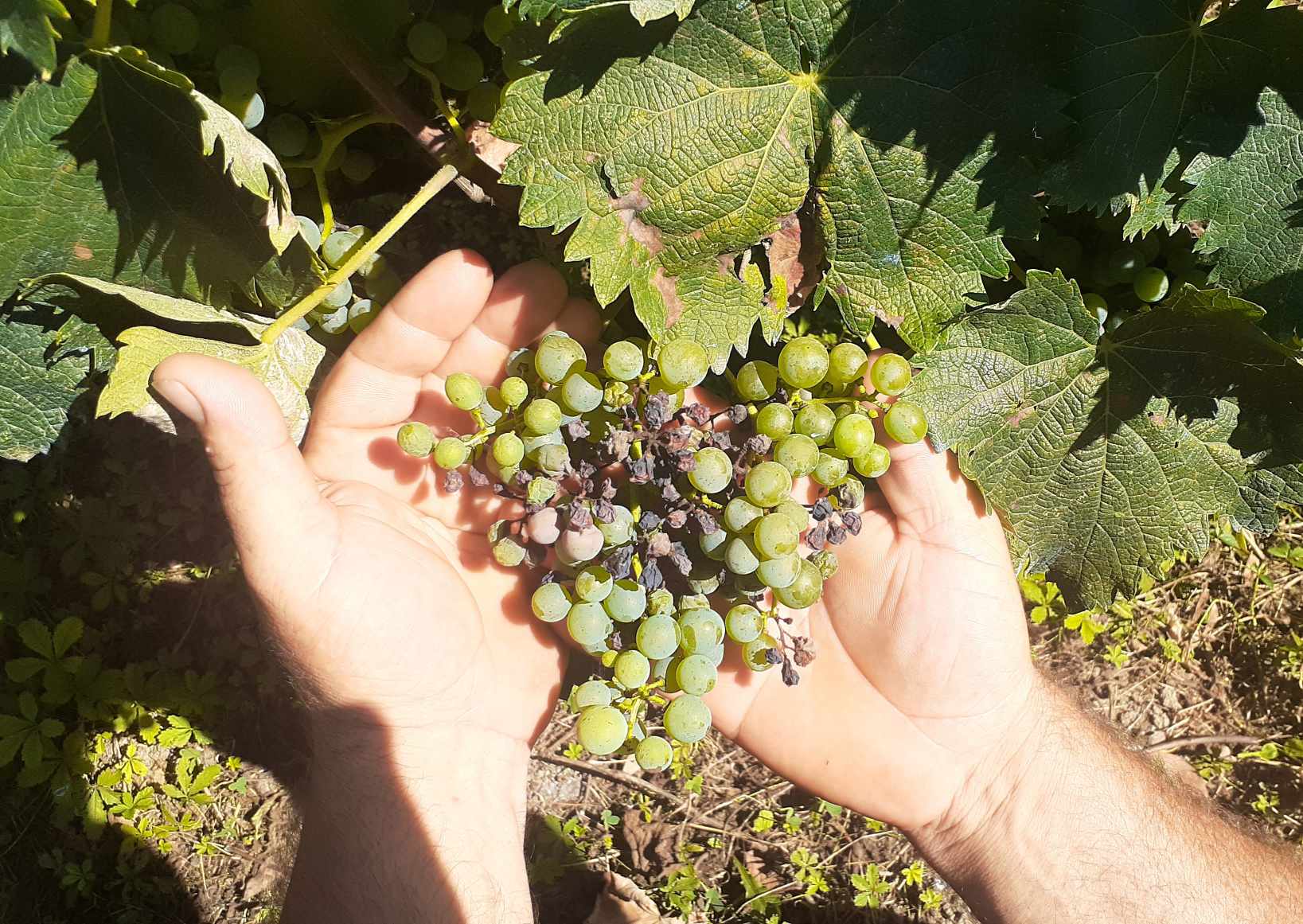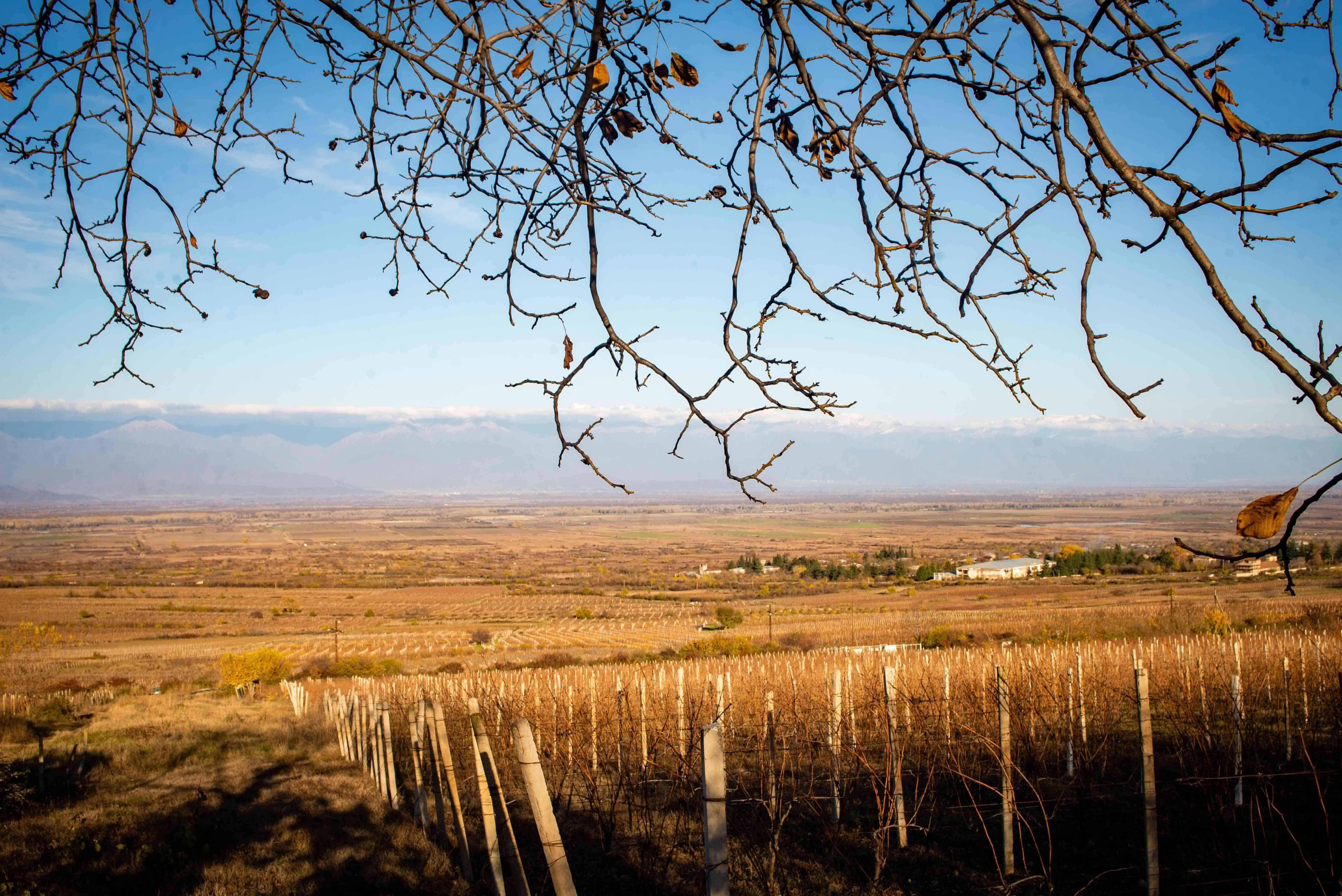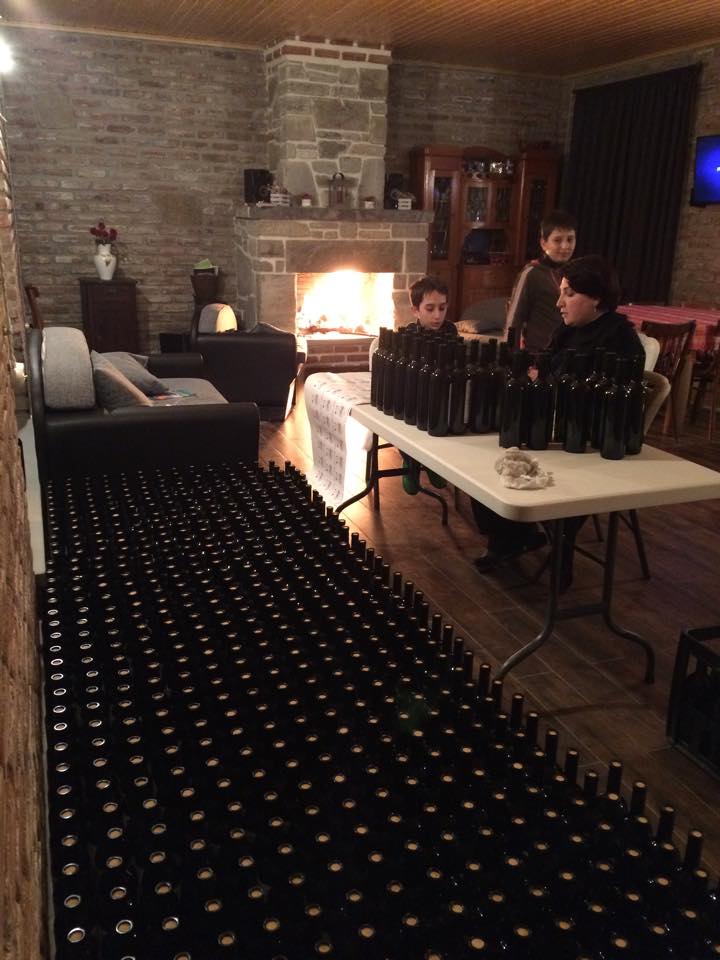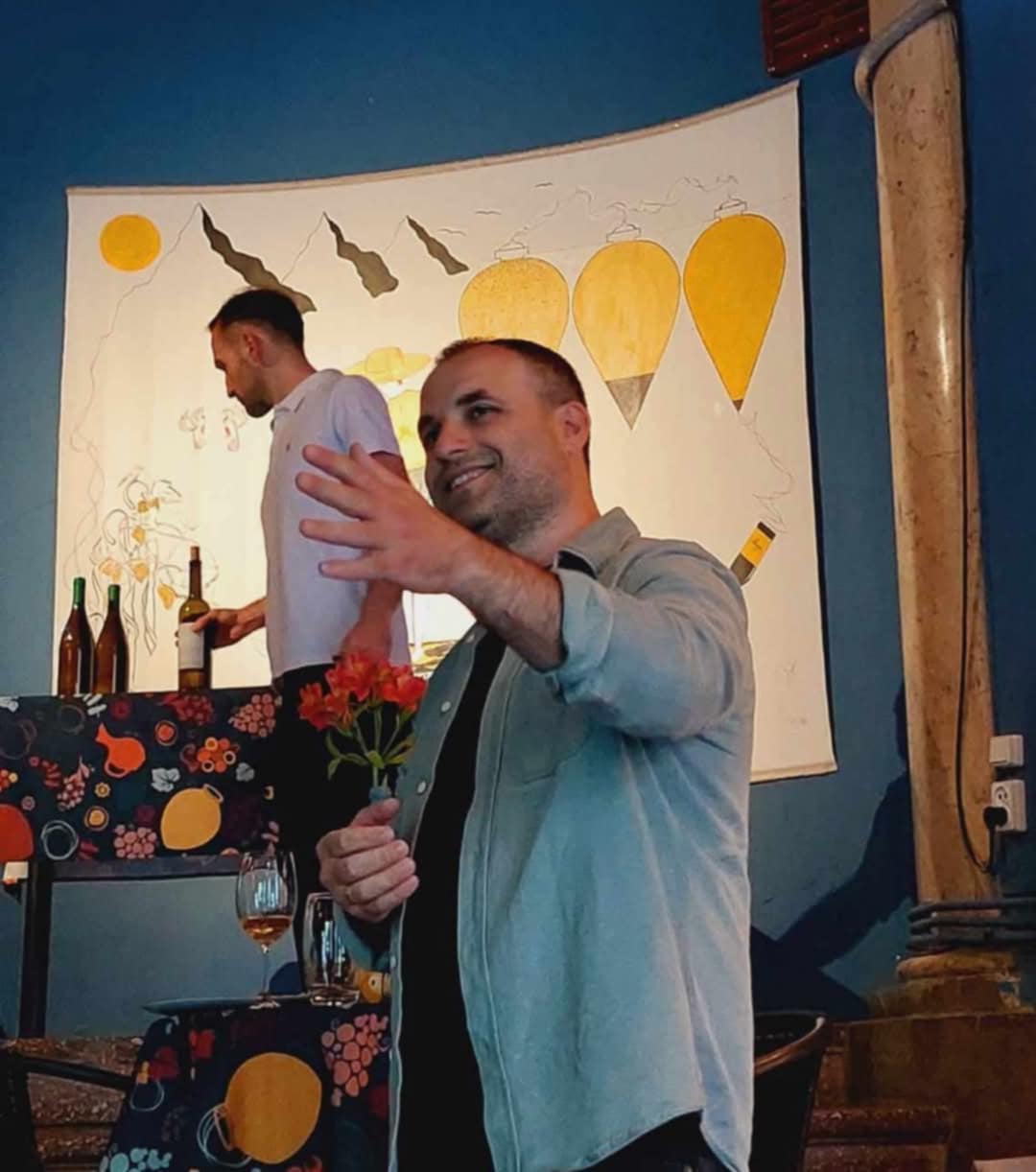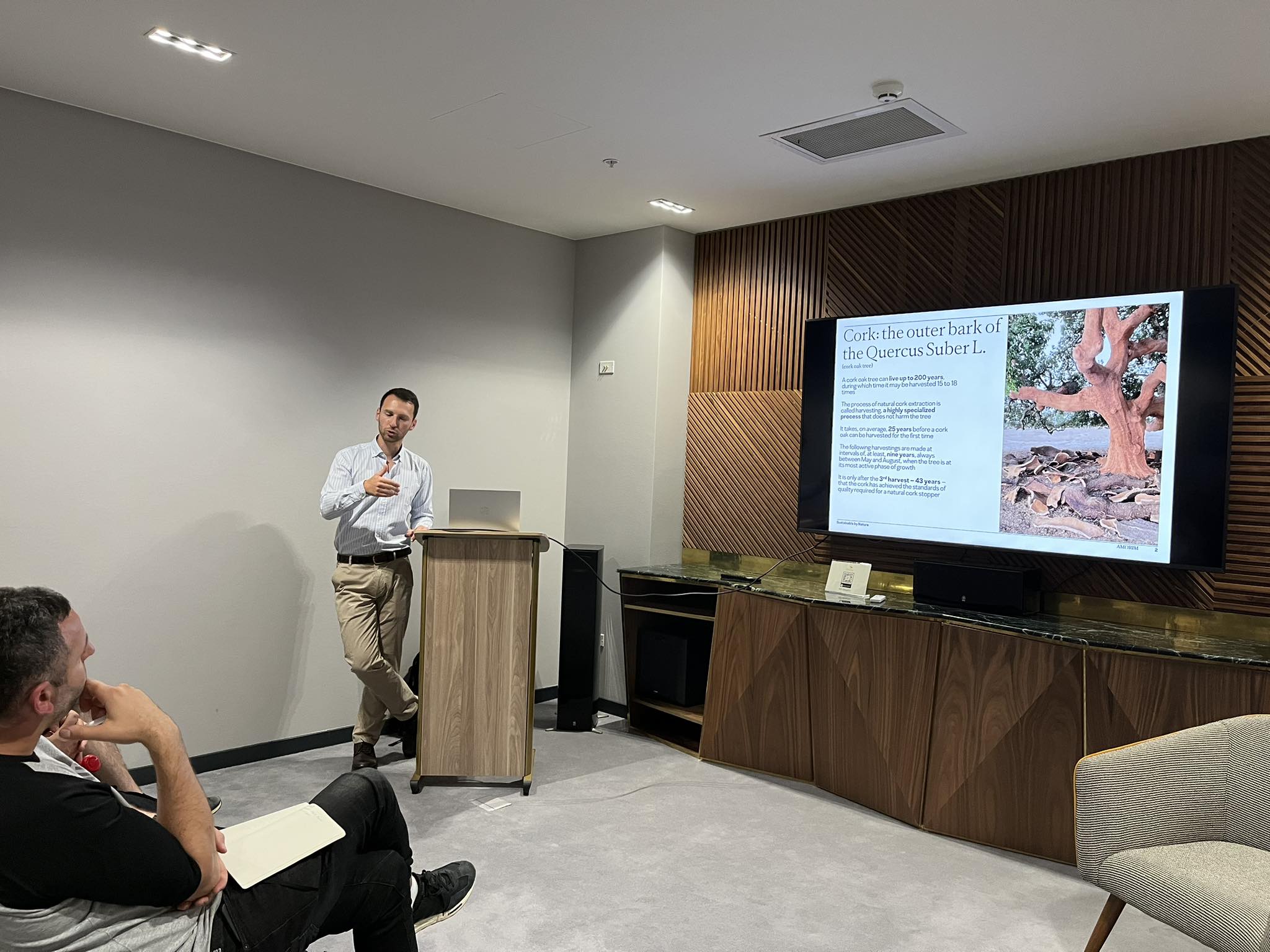Blog . 21-11-2023
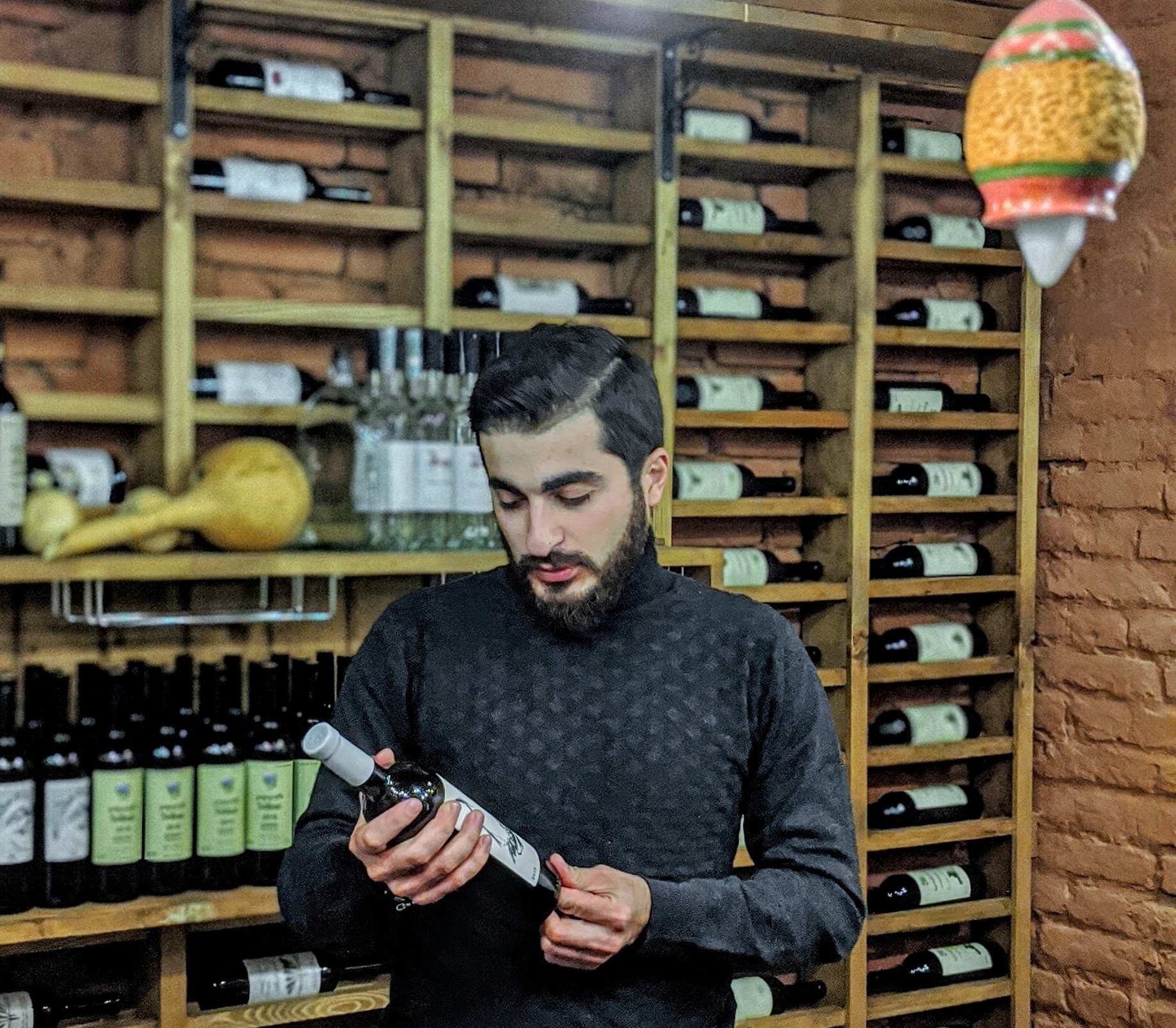
Guram Maisuradze: ‘The Era of Light, Explosive, and Lively Wines Has Begun in Georgia.’
Natural wine cannot exist without consumers. Hence, the role of wine shops, bars, and restaurants selling natural wine globally, while also disseminating knowledge about authentic wine and qvevri wine, is invaluable.
In recent years, numerous wine shops and bar-restaurants have sprung up in Georgia. However, establishments exclusively focused on natural wine are rare. Among them, the natural wine bar-restaurant “G.vino,” located on Chavchavadze Street in Tbilisi, plays a significant role. G.vino has been in existence since 2014.
The majority of the wines served at G.vino belong to winemakers who are members of the Natural Wine Association. The bar’s owners, Guram Maisuradze and George Aivazyan, are also winemakers affiliated with the same Association.
NWA.GE interviewed Guram Maisuradze, co-owner of ‘G.vino.’ Alongside the ‘G.vino’ team, he not only sells wines from various small wineries but also engages with interested individuals, discussing the history of these wineries, specific wine samples, and the philosophy of natural viticulture and winemaking.
Guram Maisuradze, a winemaker and representative of the wine bar ‘G.vino,’ reflects on the past decade: ‘For the last 10 years, I have immersed myself in the world of natural wine, closely observing the ongoing processes. When we opened the bar in 2014-2015, people regarded the story of natural wine with irony. Today, the situation has undergone a radical transformation. Demands and interests continue to rise, as seen in the natural wine festivals organized by the Association. It appears that more and more people seek us out, expanding their knowledge. Simultaneously, the number of wineries continues to rise. Most importantly, young individuals—both girls and boys—now not only consume wine and visit wine bars but also actively participate in harvesting and winemaking in their villages. Witnessing this growth, especially among 26-27-year-olds, brings me immense joy. It’s a remarkable evolution compared to a decade ago.’"
Question: According to your observations, which age group and category of people are particularly interested in natural wine?
Answer: Gradually, interest in natural wine spans across various fields. However, I’ve noticed particular enthusiasm from younger artists—singers and actors—as well as students. Conversely, individuals in the economic sector, such as bankers, tend to be more reserved and prioritize wine prices. They often perceive price as the primary quality indicator.
Question: What types and styles of wines are particularly popular in terms of sales? Do consumers prefer qvevri wine?
Answer: Undoubtedly, qvevri wine has gained prominence. Recently, there has been significant demand for qvevri-aged wines without skin contact. Contrary to the misconception that qvevri wines must be heavy, many newcomers discover that they can be light, high-acidity, and without skin contact. Light qvevri wines have become especially trendy in recent years, marking a new direction. While strong amber and heavy red wines face challenges in the Georgian market, the era of light, explosive, and lively wines has begun. Additionally, ciders, petnats, and other simple, light wine styles are also fashionable. Although full-bodied Kakhetian qvevri wines remain excellent, the numbers suggest that lighter qvevri wines are currently in vogue.
Question: Can you tell us about particularly popular wineries?
Answer: While I don’t want to single out specific wineries, it’s clear that some have gained more popularity among natural wine enthusiasts. Our broader goal is to promote wines from new wineries, as this fosters growth and progress for smaller producers.
Question: Which price segments does natural wine include? Also tell us which are the most expensive wines you sell?
Answer: Natural wine prices can vary significantly, influenced by factors such as the winery and the popularity of specific wines. Regarding the most expensive wines, we’ve featured aged, reserve, and truly exceptional wines from winemakers like Merab Matiashvili and Lekso Tsikhelishvili. These wines have been priced at 100 GEL or more.
Question: Are consumers interested in details about specific wine samples, such as how they were made and who the manufacturer is?
Answer: Absolutely! Consumers often inquire about the origin of specific wine samples and the historic cellars where they were crafted. Common questions include whether the wine is natural, its level of dryness, and the vineyard location. Those with a professional interest in wine tend to ask even more specific and intriguing questions. In some cases, people explore the phenomenon of natural wine and inquire about organizations that unite wineries producing these unique wines.
Unfortunately, many wineries have recently labeled their wines as ‘natural’ without a clear understanding of what that term truly entails. For some, the definition is overly simplistic: they believe it means merely avoiding the use of yeast in winemaking. However, the concept of natural wine extends far beyond this limited perspective. While these winemakers have the right to name their wines as they see fit, it would be beneficial for all wine producers (whether or not they belong to the Natural Wine Association to deepen their knowledge about natural winemaking. Such awareness could significantly enhance the entire field of winemaking.
Question: Do you have natural wines produced in other countries, and how significant is the demand for them?
Answer: In 2017, we introduced European (French and Italian) natural wines to our bar, despite initial challenges. Unfortunately, the interest was quite low at that time. However, this year, we’ve imported a small quantity of European (mainly French) natural wine, and it appears that demand has increased slightly. Still, we recognize that there’s much work to be done. Our goal is not only to offer French wines but also to bring wines from various countries, thereby enhancing wine knowledge among Georgian consumers.
However, our main goal is to make consumers fall in love with Georgian natural wine and convince them of its uniqueness. By elevating the culture of wine consumption, we believe that anything is possible!
Levan Sebiskveradze
